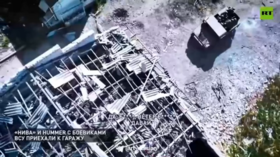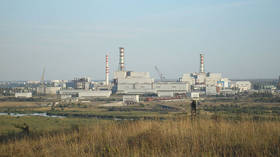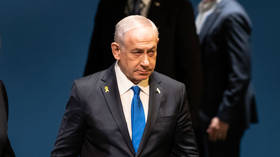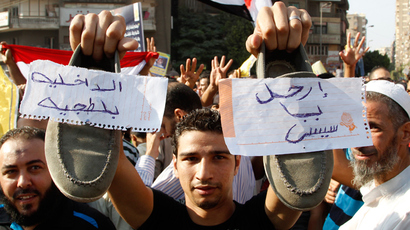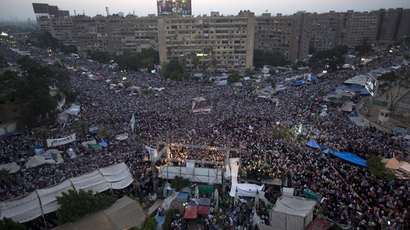Tear gas, stones, clashes in Cairo amid new anti-protest law
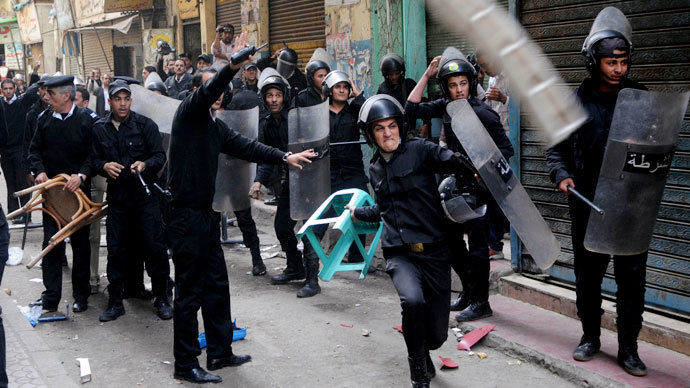
Police fired tear gas and used batons to beat back stone throwing protesters in Cairo on Saturday, as Egypt’s constitutional panel began voting on a new constitution’s final draft, amid fears that one of its laws may curb the right to peaceful protest.
The clashes erupted between riot police and protesters a few kilometers away from Egypt’s constitutional committee headquarters where the 50 member panel had begun debating the final recommendations for changes to the 2012 Islamist constitution.
The demonstration was to condemn the detention of 24 activists who were arrested on Tuesday after taking part in an unauthorized protest.
Among the protesters arrested was Ahmed Maher, who was one of the leaders in the 2011 uprising that ousted long serving president Hosni Murbarak.
Egypt is expected to hold a referendum in December on changes to the constitution, which is seen as a milestone in the country’s bumpy transition to democratic rule after a popular military coup in July which ousted the Islamist former President Mohamed Morsi.
One of the changes to the constitution includes a law enacted
last Sunday which allows security agencies to ban protests, which
have not been previously reported to the Interior Ministry. It
also sets high fines and prison terms for protesters who break
the law.
The new law sparked concern from both the UN and Egypt’s ally,
Washington. On Saturday, US Defense Secretary Chuck Hagel
telephoned his Egyptian counterpart, Defense Minister Abdel
Fattah al-Sisi, to express the county’s reservations. Hagel said
that the Egyptian government's approach to free speech would be
seen as a demonstration of its “commitment to a non-violent,
inclusive and sustainable democratic transition,” Pentagon
spokesman Carl Woog said in a statement.
Since the law came into force last Sunday, security forces have broken up several rallies and detained protesters. On Thursday, police suppressed a march organized by Islamists from Cairo University and a student was killed in the confrontation. As a result, 130 teaching and administrative staff at the university’s engineering department called a strike in protest.

The new law appears to be aimed at breaking the nearly daily protests crippling the country either by the Islamists supporting Morsi or others who are opposed to Egypt’s military backed interim government.
On Friday, security forces arrested 183 demonstrators who they called ‘rioters’ under the new law.
The protest had been called by the National Alliance for the Defense of Legitimacy, Morsi’s main support block, to mark the passing of 100 days since 35 pro-Morsi protesters were killed in police custody, according to Turkey’s official Anadolu news agency.
The new law has also angered secular allies of the current government who have been largely quiet since Morsi was deposed. Mosrsi was removed by the Egyptian military on July 3 2013, after mass protests called for his resignation. He governed Egypt for a little over a year, over which period the economy nosedived.
Deputy Prime Minister Ziad Bahaa-Eldin condemned the law as restricting peaceful demonstrations and for not having been passed by an elected parliament. He has called on the authorities to review it to show that they are ready to listen to the secular section of Egyptian society.
“It is not a shame and it does not detract from the prestige of the state to reconsider a law that will only widen the gap between the state and the youth,” said the politician on his Facebook page.
It is unclear whether while voting through the amended constitution, lawmakers will reconsider the new piece of legislation. The voting session of the final draft of the document is set to be broadcast on state television."It is the transition from disturbances to stability and from economic stagnation to development,“” one of the panel leaders Amr Moussa, told reporters, adding that he hoped everyone supported the constitution.



